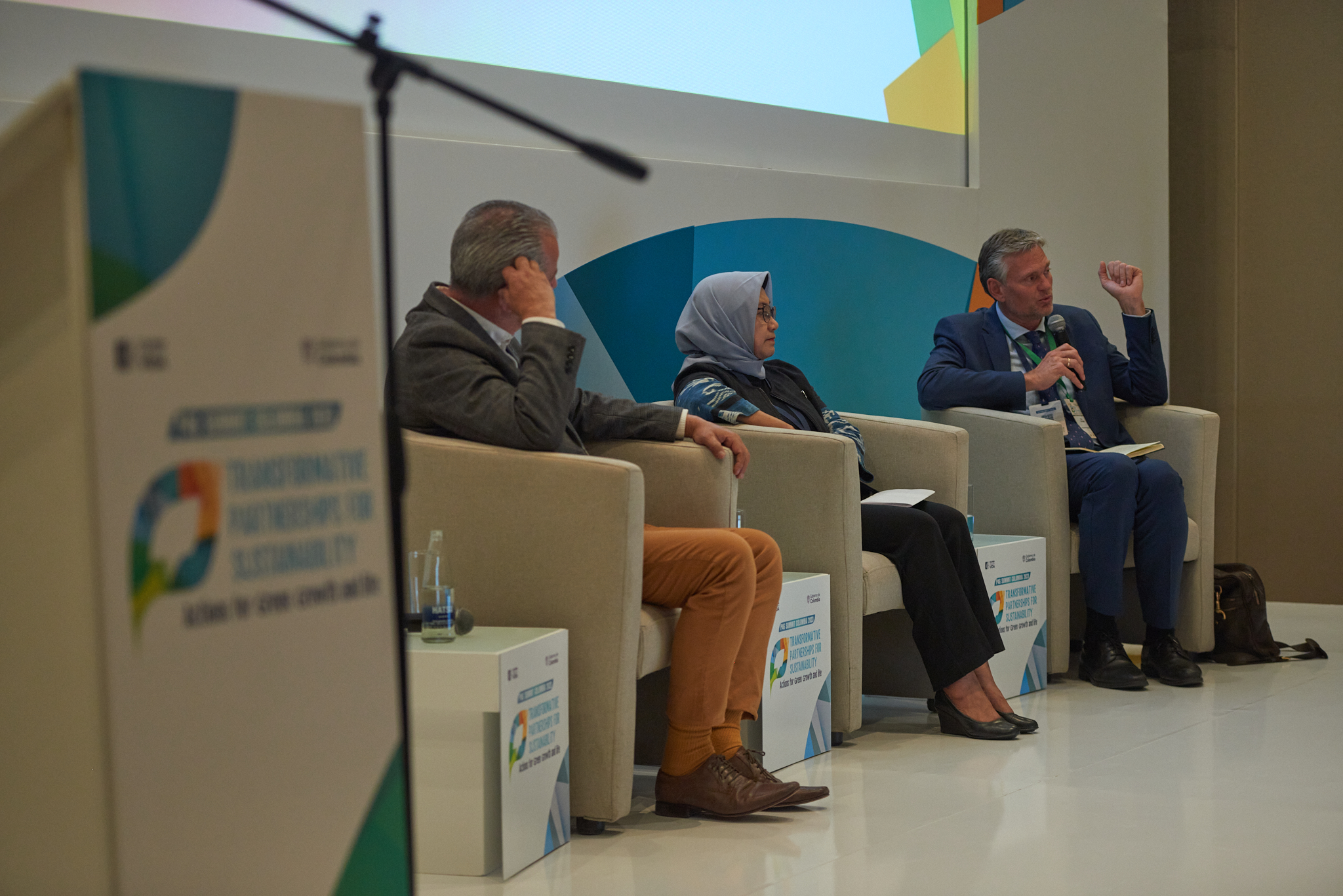How Nature-Based Solutions are Protecting Biodiversity

Subject
P4G Summit
Publication Date
2023-10-03
About
“We need more collaboration on what actually works. What solutions can be implemented on the ground to get that ecosystem of knowledge out there,” said Ole Thonke, Vice Minister and Undersecretary for Development Policy, Denmark to kick off the Biodiversity track at the P4G 2023 Colombia Summit. Valuing and protecting biodiversity as a key stalwart against climate change echoed throughout Summit conversations.
During the biodiversity opening remarks, Vivi Yulasawti, Deputy Minister of Maritime Affairs and Natural Resources in Indonesia, shared how her country has worked to identify the main issues and challenges facing biodiversity and is now in the process of enabling a regulatory framework to resolve them. They are developing an Indonesian Biodiversity Strategy and Action Plan to serve as a reference for strategic policies including an integrated system for business permit mechanisms. This requires private sector collaboration on digital technology and information. Yulaswati emphasized the importance of keeping up momentum to ensure implementation of the global biodiversity framework.
Thonke noted that biodiversity is a big priority for Denmark, as restoring ecosystems would contribute tremendously to reducing carbon dioxide emissions globally. Rodrigo Ravena, Secretary of Environment for Sao Paulo, Brazil shared the city’s approach to valuing and preserving biodiversity despite its large population. All speakers emphasized the need to closely link biodiversity and nature-based solutions to climate change.
At the panel session on Land Restoration and Nature-based Solutions, panelists discussed opportunities to forge partnerships and overcome barriers between stakeholders who have different legitimate interests and who seek different objectives. The session underscored the need for accountability, something that wasn’t always clear as different authorities work in siloes making it difficult to understand who is leading the issue. Moderated by Pablo Martinez, Country Representative for the Global Green Growth Institute, the key question posed to panelists was - “What do we need to make a successful model?”
Cristian Zamora, Mayor of Cuenca, Ecuador, illustrated the importance of financing through payment for environmental services. However, he cautioned that voluntary schemes, where companies can choose credits based on supply and demand, must be better defined and managed to make them effective. He also reiterated the opportunity to make people care about biodiversity through powerful images of animals which makes the issue seem more tangible, but admitted that monetizing environmental activities remains challenging.
Adriana Lobo, Managing Director, Global Presence and National Action at World Resources Institute noted the need to find a balance between the interests of all stakeholders. She also outlined the technical challenges, which include defining land ownership, accessing capital and markets, and combining equity loans and grants in a single vehicle. This challenge is compounded by the lack of understanding of how to transact equity or grants across borders. Along with financing, Lobo urged stakeholders to consider how to improve training capacity and aggregate land ownership.
Panelists including Wonyoung Kim, Executive Director, Crevisse Partners shared some of the technical challenges and need to find solutions where people can live in urban areas without destroying nature. Speakers also emphasized the contribution investors can make, including talent development and helping businesses with strategic decision making. Most importantly, they noted we must trust experts to find good nature-based solutions in pursuit of an ambitious vision for restoration.
In the fireside chat on Deforestation and Biodiversity Loss, Fernando Paez, Deputy Director, WRI Colombia moderated a discussion between Alejandro Gutiérrez, Sustainability Manager at Natura and Wubie Mengestu, Secretary General of the Ethiopia Chamber of Commerce and Sectoral Associations, which explored the role of the private sector in shifting demand from unsustainable practices. Both speakers offered examples of solutions that are reducing deforestation through viable business models.
